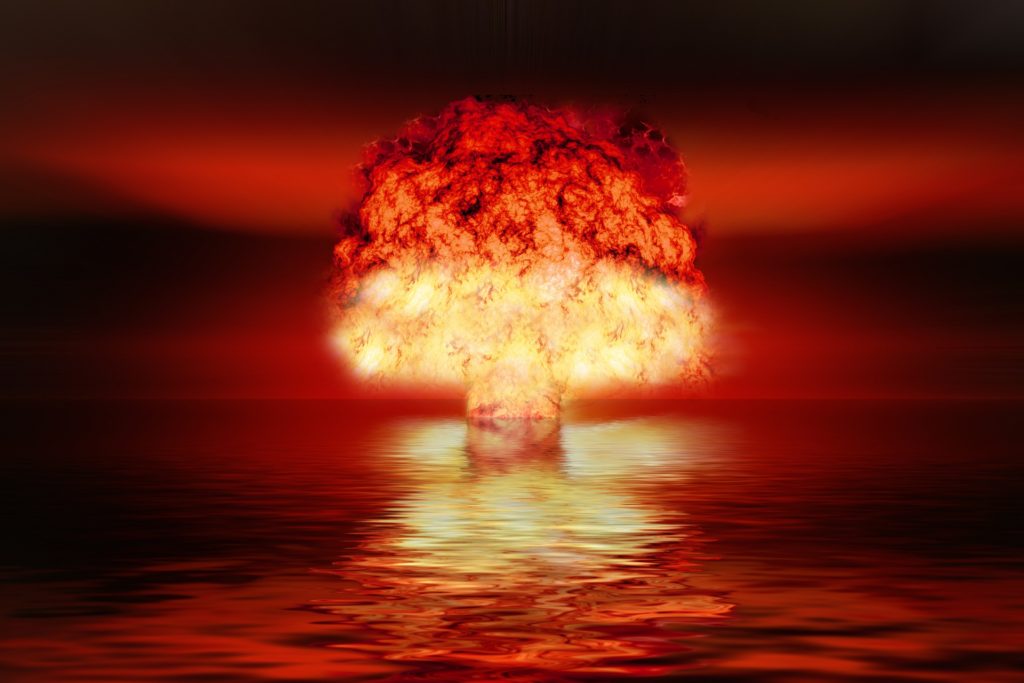
This is just an excerpt. I highly recommend clicking on the link and reading the whole article. – Natylie
By Michael Tracey, Substack, 2/10/22
…I know it’s considered gauche to actually listen to what Vladimir Putin says, but on occasion he provides information that might be relevant for assessing the nature of geopolitical problems. During an hour-and-a-half-long interview with NBC News in June 2021, which can be watched in full here, Putin was pressed on a previous “buildup” of Russian forces around the border with Ukraine. (By the way, imagine Biden sitting for a televised interview with Russian media for any length of time.) In response, Putin noted that the US had just been conducting its own large-scale military exercises in conjunction with NATO throughout Eastern Europe. And he was factually correct. The US media does not report on the existence of these operations to any real extent — you have to dig deep into the relevant documentation to learn, for example, that “DEFENDER-EUROPE-21” included live-fire drills in the country of Estonia, which happens to sit on the border of Russia. Putin bringing this up in a US context would doubtless get him accused of “whataboutism,” but at the same time — what about it? Why is the US conducting large multinational military exercises in such close proximity to Russia, and how ought that to reflect on the US tendency to immediately characterize any of Russia’s own military exercises as inherently aggressive?
This context gets ignored, and the insane possibility of the US triggering some sort of catastrophic war in Ukraine is just accepted, thanks in large part to the propagandistic onslaught of the past several years — which completely warped how many Americans perceive the “threat” of Russia, and completely mangled the US media’s ability to question US policy toward Russia. Remember when merely having “Russian contacts” was suddenly considered an extreme political liability? Is anyone surprised that this eventually led to the deterioration of US-Russian diplomatic relations?
The moment Donald Trump did something on the foreign stage that appeared relatively non-belligerent, such as professing his eagerness to achieve a kind of “détente” with Russia — or, relatedly, meeting with Kim Jong Un — a huge faction of Democrats and the media pounced to accuse him of only doing these things for sinister reasons, such as abetting a criminal conspiracy with the Kremlin. Political incentives therefore skewed in favor of Trump taking the more aggressive option, to demonstrate that he was not collusively in thrall to Russia. So the “détente” that Trump long claimed he wanted (though without using that highfalutin word) never came to pass, relations with Russia cratered to what many regard as a post-Cold War lowpoint, and now we’re in this predicament of quasi-brinkmanship in Ukraine where the main function of US policy appears to be egging on conflict. Seems like that “confrontation” so many were pining for is working out fantastically well!
Simply by generating tensions that wouldn’t have otherwise existed (as alleged by Zelenksy) the US is making more likely the outbreak of full-on war, which could arise from something as minor as an unforeseen accident or miscommunication. I don’t think World War III should be invoked lightly, but prominent US officials have raised it as a distinct possibility. This psychotic op-ed by Evelyn Farkas, who served as a Pentagon official during the 2014 Ukraine coup and then tried to marshal that distinguished experience into a Cable News sinecure — before unsuccessfully running for a House seat in New York as a Democrat, naturally — almost has to be read to be believed. Farkas predicts a breakout of World War III unless the Biden Administration prepares immediately for “direct combat” between US troops and Russian forces. She seems oblivious that if anything is liable to spark World War III, it’s the lunatic plan she advocates.
Is the situation in Ukraine likely to culminate in World War III? Probably not, but even the most remote possibility of World War III is probably something that should be strenuously avoided if at all humanly possible. Biden is sending more US troops to Eastern Europe, China is declaring its support for Russia’s goals in Ukraine — and none of this makes for a reassuring dynamic. At a recent appearance with Emmanuel Macron, Putin warned that war in Ukraine would engulf the whole of NATO.
So if the worst does happen, the aggression and paranoia spawned by Russiagate — and its irrational influence on US policy-making and public opinion — will have played an under-recognized role. Where is the opposition to the conflict-instigating posture of the US? Democrats have been largely habituated into viewing anti-Russia antagonism as a wonderful “progressive” virtue, while Republicans are largely useless, trying to score cheap points against Biden by idiotically accusing him of “appeasement” every chance they get. Journalists often think they are bravely holding the powerful to account by demanding more proactive US intervention. In sum, the key segments of US society are primed for sleepwalking into a war they claim they don’t want, but keep taking actions to precipitate. If this all gets out of hand, which is ominously plausible, I hope the “Kremlin agent” pot-shots from 2016 to 2020 were worth it.